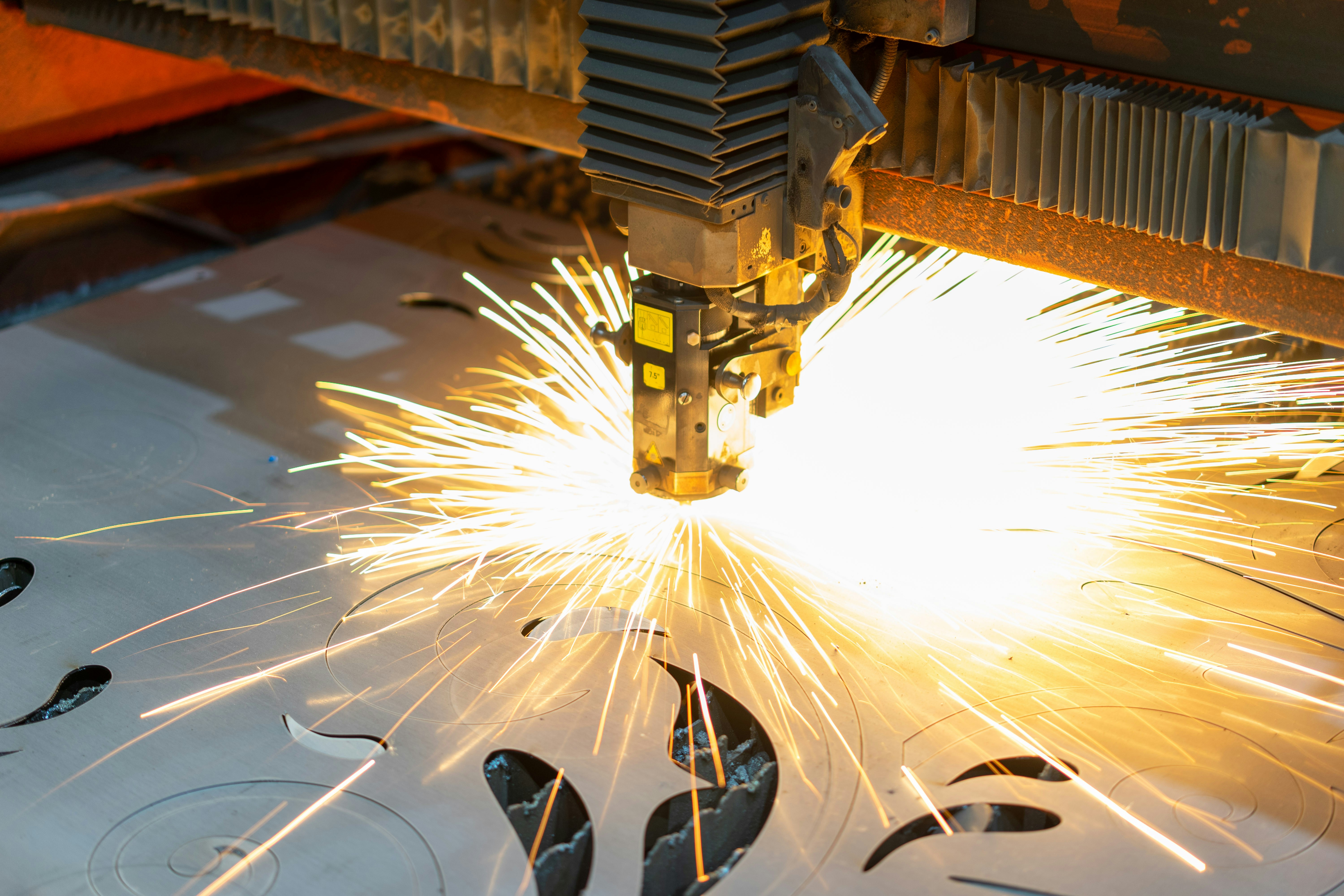The Emergence of Cloud Based Solutions in the Manufacturing Industry
Cloud based services have become a game changer for the manufacturing and engineering industries in recent years by offering companies the capability to store and analyze volumes of data without hefty on-site infrastructure requirements. Integrating cloud technology allows manufacturers to improve efficiency in their operations while cutting costs and fostering teamwork among departments. The transition towards cloud based solutions isn't merely a passing fad; it signifies a shift in how businesses function in today's fiercely competitive landscape.
One of the benefits of cloud based services is their ability to scale easily according to demand for manufacturers. This flexibility enables them to adjust production schedules efficiently in response to changing market conditions in the industry. Moreover, cloud solutions typically include security measures to safeguard data from cyber attacks. With the growing reliance of manufacturers on data-driven decision making, secure and effective data handling is paramount.
Furthermore, cloud based services enable teams to work together in real-time, no matter where they are physically located. Engineers, designers, and production personnel can all use the information and tools at the same time, enhancing communication and speeding up issue resolution. This collaborative setting is crucial for encouraging creativity and guaranteeing that projects are finished promptly and within the allocated budget. With an increasing number of businesses acknowledging the advantages of cloud technology, the use of these services is anticipated to keep expanding within the manufacturing industry.
In the changing manufacturing sector, there is a growing need for software solutions like never before. Leading custom software development companies are rising to the occasion by crafting applications that tackle the obstacles encountered by manufacturers. These developers recognize that a generic approach falls short in an industry marked by processes and demands.
Customized software solutions have the potential to improve facets of manufacturing operations, ranging from managing the supply chain to ensuring quality control measures are met effectively. Collaborating closely with manufacturers enables software developers to craft applications that blend smoothly with systems in place and offer a perspective of operations. This seamless integration plays a role in streamlining processes, guaranteeing that all elements of the manufacturing process are in sync harmoniously. Moreover, tailored software can be specifically designed to include cutting-edge technologies like the Internet of Things (IoT) and Artificial Intelligence (AI), thereby further boosting efficiency.
Investment in tailor-made software development not only boosts efficiency but also gives manufacturers a competitive advantage in the market space. By utilizing software solutions, companies can set themselves apart and better meet customer needs. With the evolving manufacturing scene, partnership with leading custom software development firms will be crucial for businesses aiming to excel in this changing setting.
The Use of Multi-Agent AI Systems in Customer Service for Manufacturing Industries
The use of multi-agent AI systems in customer service is changing how manufacturers communicate with their customers for the betterment of the relationship between them both.
One of the advantages of multi-agent AI systems lies in their capacity to manage various customer interactions at the same time effectively. This feature enables companies to respond to customer queries-an aspect in an industry where delays may result in substantial losses. Moreover, these systems can gain insights from interactions, enhancing their responses continuously, thus increasing efficiency as time goes on. This flexibility guarantees that customers receive pertinent information, ultimately improving their satisfaction.
In addition to that, multi-agent artificial intelligence systems can be incorporated into customer relationship management (CRM) software to offer an overview of customer engagements. This integration enables companies to monitor customer preferences and actions, helping them customize their services accordingly. With the rising need for customer experiences, the adoption of multi-agent AI systems will be crucial for manufacturers aiming to stay ahead in the market.
Exploring the Integration of Scrum Practices in Manufacturing Initiatives
Scrum methods were first created for software development and are now being embraced in the manufacturing industry to enhance project management and teamwork. By incorporating Scrum principles into their processes, manufacturers can better respond to changes and produce top-notch products. The incremental approach of Scrum enables teams to divide projects into parts, enabling continuous enhancement and adjustment.
Implementing Scrum methods in manufacturing offers a benefit; it prioritizes functional teams that bring together people from different backgrounds to encourage collaboration and creativity in problem-solving processes. Having diverse perspectives ensures consideration during decision-making and results in better solutions. Additionally, Scrum advocates for communication through stand-up meetings to keep teams aligned and focused on their objectives.
Furthermore, Scrum methods promote a culture of responsibility and openness. Team members are encouraged to assume responsibility for their duties, resulting in improved morale and efficiency. As companies aim to enhance their procedures and offer products, integrating Scrum methods can greatly assist in attaining these goals. By accepting this structure, businesses can handle the intricacies of their projects effectively and smoothly.
The Importance of AI Copilots for Teams in the Manufacturing Sector
AI copilots that work alongside teams are becoming increasingly useful in the manufacturing industry by supporting employees with a range of tasks and boosting efficiency levels. These smart tools utilize machine learning and natural language processing to offer assistance in decision-making processes for teams. By incorporating AI copilots into their operations, manufacturers can improve efficiency and ease the workload on their staff members.
AI copilots offer an advantage by examining sets of information and offering practical suggestions. In manufacturing settings, for illustration, an AI copilot can keep track of production statistics and spot bottlenecks before they turn into concerns. This proactive strategy helps teams deal with issues promptly, reducing downtime and improving productivity. Furthermore, AI copilots can support with tasks, enabling workers to concentrate on projects instead.
Moreover, AI copilots can improve teamwork by helping team members communicate and share knowledge effectively. They offer employees information and tools tailored to their roles and duties, guaranteeing that everyone is equipped for success. As businesses increasingly adopt advancements, incorporating AI copilots will become crucial in promoting a culture of creativity and ongoing progress.
Difficulties Encountered When Implementing Cloud Based Solutions in the Manufacturing Sector
The advantages of using cloud based services in manufacturing are substantial; however, integrating these technologies poses obstacles for manufacturers to overcome. A major worry for manufacturers revolves around data security when utilizing cloud storage for information, as it brings up concerns about the safeguarding of data and adherence to industry standards and regulations. Manufacturers are required to assess their chosen cloud service providers to confirm the implementation of security protocols.
One more hurdle lies in merging cloud based services with systems for companies in the manufacturing sector. Numerous manufacturers depend on systems that might not align well with cloud options. This mismatch could result in interruptions and higher expenses as businesses strive to connect the dots between present technologies. To address these challenges effectively, manufacturers ought to craft a plan for embracing cloud technology that encompasses testing and training for their staff members.
Embracing cloud based services may pose a challenge for organizations due to the shift involved in the process. Some employees might be hesitant to embrace change as they worry about how new technologies could impact their routines and potentially make their skills outdated. To alleviate these worries and ensure a transition to cloud technology adoption within manufacturing companies, focus on implementing change management strategies that highlight the advantages of cloud technology and offer support and guidance to employees during the transition phase.
The Upcoming Developments in Manufacturing and Engineering
The manufacturing and engineering industries are at the cusp of a shift to technological advancements and evolving market needs. A key trend in this transformation is the growing dependence on automation and robotics. Manufacturers are aiming to enhance efficiency and cut down labor expenses by integrating automated systems. This transition will not only boost productivity but also free up human resources for tasks that demand creativity and problem-solving abilities.
There is a trend towards prioritizing sustainability and adopting eco-friendly practices in manufacturing industries nowadays. Companies are realizing the significance of reducing their impact by cutting down their carbon footprint and managing waste. This move towards sustainable manufacturing is expected to spark creativity in materials and techniques, resulting in the production of environmentally friendly products and procedures. Businesses that focus on sustainability will not just comply with regulations but also attract consumers who are environmentally aware.
In shaping the future of the manufacturing industry, significant advancements in technologies like AI and IoT will enable manufacturers to access and analyze real-time data for better decision-making and enhanced operational effectiveness. With endless potential for innovation and growth ahead, these advancements are being embraced by the industry.
In summary, the manufacturing and engineering industries are undergoing changes due to the influence of cloud based services that offer secure solutions for collaboration purposes. It is crucial for manufacturers to embrace these advancements to boost productivity levels, increase customer satisfaction, and remain competitive in a market environment. By collaborating with leading custom software development firms and utilizing multi-agent AI technologies, manufacturers can streamline their processes and provide top-notch products.
Utilizing Scrum methodologies and incorporating AI copilots in team efforts can boost teamwork and efficiency for manufacturers tackling projects effortlessly. It is crucial to address obstacles like safeguarding data privacy, integration of systems, and overcoming cultural barriers for a smooth transition. In the evolving industry landscape, adopting cloud based solutions will be essential for manufacturers aiming to prosper in the long run.
In the end, the outlook for manufacturing and engineering looks promising as technology continues to evolve, ushering in opportunities for creativity and expansion.

.avif)










